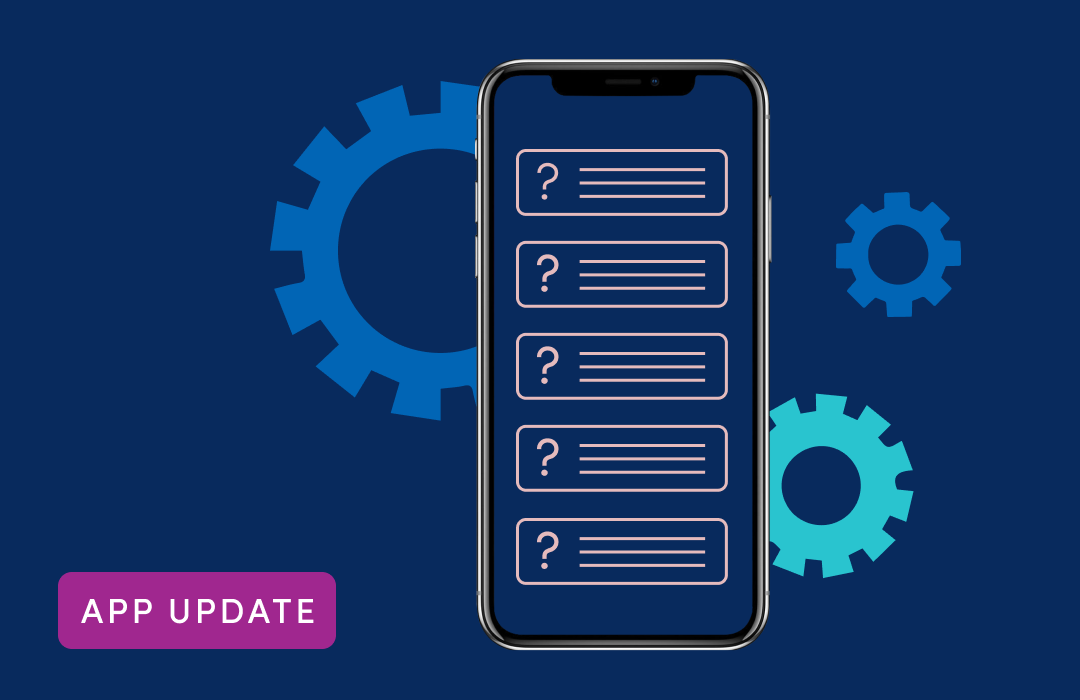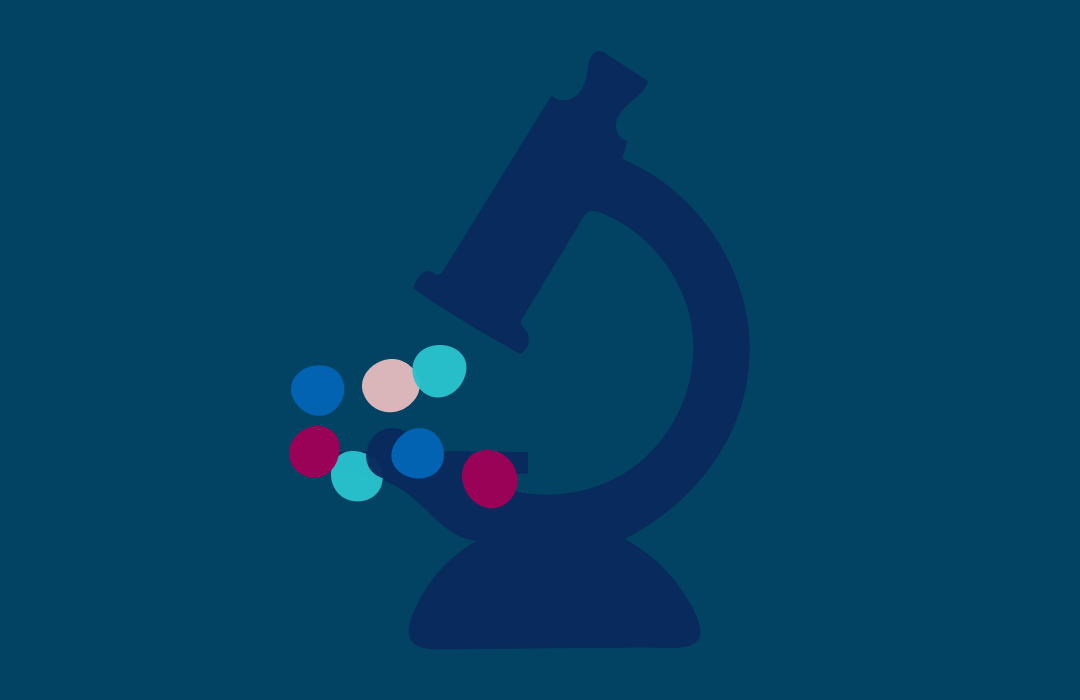
How we’re helping to protect people with cancer during the COVID-19 coronavirus pandemic
April 28, 2020
How the COVID Symptom Study app is helping to protect people with cancer during the coronavirus pandemic
The coronavirus pandemic is a time of high anxiety and fear for many people, particularly those who are already living with cancer. Not only are people undergoing cancer treatment more at risk from COVID-19, but they may face disruptions to their therapy that could have serious knock-on effects on their health.
We spoke to Dr. Alpa Patel from the American Cancer Society to find out more about the impact of COVID-19 on people with cancer, and how data from our COVID Symptom app will help patients and doctors to make decisions about cancer treatment during the pandemic.
How does COVID-19 affect people with cancer?
“Cancer patients are among those at high risk of having a severe response to COVID-19 infection. Cancer and the associated treatments can weaken a cancer patient’s immune system making them more susceptible to the virus,” says Alpa.
Given this increase in risk, patients and doctors alike are unsure about how exactly the disease will affect people with cancer or how treatment should progress during the pandemic. Researchers have highlighted the need to monitor and share information about COVID-19 symptoms in patients with cancer.
So far, there have been a few observational studies of the effects of the novel coronavirus on patients with cancer in China and Italy. But they only looked at a small number of people with a limited range of symptoms, so we should be cautious about interpreting their results.
We have found over a dozen symptoms that indicate COVID-19 infection, such as loss of smell, but we don't yet know their relevance in cancer patients.
Here’s what researchers have found so far:
- Patients who are admitted to hospital with COVID-19 are at a higher risk of requiring ventilation in intensive care if they have a history of cancer.
- The risk of severe symptoms is even higher in patients who have received chemotherapy or had surgery in the past three months.
- The severe effects of COVID-19 were more common among older patients with cancer.
- There are few reports of COVID-19 in children with cancer. Five positive cases were recorded by a childhood cancer center in Lombardy, Italy, all of which were mild.
How can people with cancer protect themselves from COVID-19?
“Cancer patients and the caregivers for these patients should practise precautions as advised by the Centers for Disease Control and Prevention including, but not limited to, rigorous and regular hand washing (for at least 20 seconds), practising social distancing, and avoiding touching your eyes, nose, and mouth,” explains Alpa.
People with cancer may also be advised to avoid public places, stay at home wherever possible, avoid contact with others, and disinfect frequently touched objects more often. Your care team will advise you on the best action to take to protect yourself.
How will the pandemic affect cancer treatment?
Because we don’t have much information about how COVID-19 affects patients with cancer, it is difficult to develop guidelines about the best way to manage cancer during the pandemic.
“While care teams are doing their best to deliver care, there are unfortunately disruptions to the ability to deliver usual care,” says Alpa.
“Medical professionals are often having to change treatment plans for people with cancer. For example, some cancer patients are unable to go in for treatments and are having to change to other regimens that can be administered safely at home, such as oral medications. Some doctors are using telemedicine options to ‘see’ their patients without putting them at risk by having them come in person,” she explains.
Currently, it is down to individual health care teams to weigh up the risks of changing or delaying treatment compared with the increased threat from COVID-19, as well as the potential effects of staff and drug shortages.
Depending on your individual circumstances, your care team may suggest reducing visitors and admission of caregivers during hospitalization, canceling supportive activities like group therapy or moving them online, taking longer breaks between chemotherapy doses, or postponing treatment altogether.
How monitoring the outbreak can help minimize disruption to cancer treatment
One of the biggest problems we have right now in fighting the coronavirus and making decisions about cancer care is a severe lack of information. That’s why we launched our COVID-19 Symptom Study app to follow the disease in its many forms as it moves through the population and identify those at risk sooner.
Developed by our team of researchers at King's College London and Massachusetts General Hospital, together with health science company ZOE, the app asks people to report their health daily, whether you’re feeling well or experiencing any of the range of symptoms that might be related to COVID-19.
We’ve also been working together with cancer research organisations like the American Cancer Society, Stand Up To Cancer and Cancer Research UK to make sure that the app is gathering information that is relevant to cancer patients and will help to improve their care.
The app asks questions about your overall health, including whether you are living with cancer, what type of cancer you have, what treatment you are receiving, whether you are currently taking part in any clinical trials, and where you are receiving treatment.
“The COVID Symptom Study app will be important in understanding symptom progression in different populations, including cancer patients, and allowing medical professionals to anticipate better what to expect and when, how, and which symptoms may present and progress,” explains Alpa.
As a result, the information provided by people with cancer through the app will feed into research to help healthcare providers make the right decisions about how to manage cancer during the pandemic.
COVID-19 and cancer in brief
- People with cancer may be more at risk from the severe symptoms of COVID-19
- But we don’t have much information about how exactly COVID-19 affects people with cancer and what symptoms they have.
- As a result, it can be challenging to make decisions about how cancer treatment should progress during the pandemic
- Gathering information about the symptoms of coronavirus in people with cancer may help us identify those at risk sooner, and help medical professionals make informed decisions about cancer care.
For this symptom-based approach to work, we need as many people as possible to download the app and spend less than a minute checking in and logging your health status every day. You can also add multiple user profiles to the app for other friends or family members who want to take part but aren’t able to use the app themselves.
Find out more:
- Coronavirus, COVID-19, and Cancer – American Cancer Society
- Coronavirus (COVID-19) and cancer – Cancer Research UK
- COVID-19 RESOURCES – Stand Up To Cancer
- Early Advice on Managing Children With Cancer During the COVID-19 Pandemic and a Call for Sharing Experiences
- Cancer patients in SARS-CoV-2 infection: a nationwide analysis in China
- Clinical characteristics of COVID-19-infected cancer patients: a retrospective case study in three hospitals within Wuhan, China
- Coronavirus and the Cancer Patient – The New York Times
- Coronavirus: Cancer patients missing out on 'vital' treatment due to COVID-19 – Sky News





.png)


.png)



















_(1).png)















.png)





